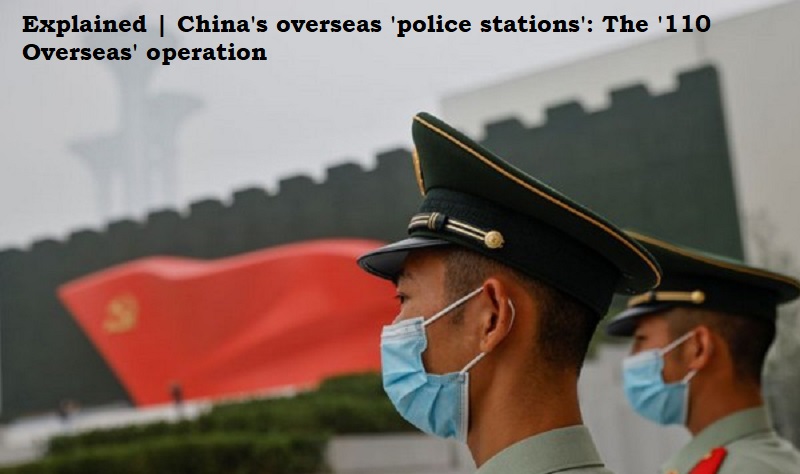
Two men of Chinese descent were arrested in New York City’s ChinaTown on Monday for allegedly establishing a Chinese ‘police station’. These are the first arrests of their kind in the world, although it has been known since September 2022 that Beijing has been setting up overseas policing operations. Chinese authorities claim that from April 2021 to July 2022, they persuaded 230,000 nationals to return from abroad to face criminal proceedings in China. This operation is part of a nationwide campaign to combat telecommunication fraud, according to Beijing.
A September 2022 report by the Spanish human rights organisation Safeguard Defenders, titled ‘110 Overseas, Chinese Transnational Policing Gone Wild,’ extensively explores the issue. The report reveals that China established its first overseas Chinese police ‘service station’ in 2016 as part of ‘110 overseas,’ named after the country’s national emergency number similar to the USA’s 911.
These ‘service stations’ act as de facto policing operation centers in 53 countries meant to police Chinese overseas deemed as targets by Beijing for various reasons. The most commonly used justification is combating online fraud and ensuring that fugitives in the concerned cases return to China. However, the targets are often Chinese dissidents who oppose Beijing’s repression in regions of contested territorial ambitions such as Xinjiang and Taiwan. In addition, individuals who have fled religious or ethnic persecution have also been targeted by these police stations.
While openly labelled as overseas police service stations to accommodate the growing administrative needs of Chinese residents abroad, such as renewing Chinese driver’s licenses or passports remotely, and other tasks typically considered of a consular nature, the ‘110 Overseas stations,’ both in their online and physical overseas form, also serve the goal of ‘resolutely cracking down on all kinds of illegal and criminal activities involving overseas Chinese.’
According to Safeguard Defenders, Beijing operated at least 102 ‘Chinese Overseas Police Service Centers’ in 53 countries around the world. These countries include Angola, Argentina, Australia, Austria, Bangladesh, Brazil, Brunei, Cambodia, Canada, Chile, Colombia, Cuba, Czech Republic, Ecuador, Ethiopia, France, Germany, Greece, Hungary, Indonesia, Ireland, Israel, Italy, Lesotho, Madagascar, Mongolia, Myanmar, Namibia, New Zealand, Nigeria, Sudan, Panama, Peru, Portugal, Romania, Russia, Serbia, Slovak Republic, South Africa, South Korea, Spain, Sweden, Tanzania, The Netherlands, United Arab Emirates, Ukraine, United Kingdom, United States of America, Uzbekistan, Vietnam, and Zambia.
A report by Safeguard Defenders cites the story of a Chinese national in Cambodia named Li Qingqing (real name withheld). In March 2022, Li was asked by an overseas police station in Cambodia to return to China. She argued that she was not a suspect of any crime and was just doing business in Cambodia. The police told her that according to China’s policy, Chinese citizens staying in the nine fraud-related countries are required to return unconditionally. After that, she continually received messages from the local police asking her to return. On May 5, 2022, police informed her that she had been put on the telecom suspect list and warned her that her mother’s house would be cut off from power and water supplies. Her mother’s house was later spray-painted with the words ‘House of Telecom Fraud,’ and a policy notice was posted next to the spray painting. Her mother was then called to the village committee and asked to persuade her daughter to return by May 31. Li’s current fate and whether she has returned or not are unknown.

Post Your Comments